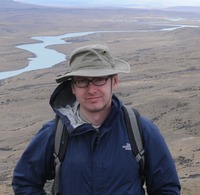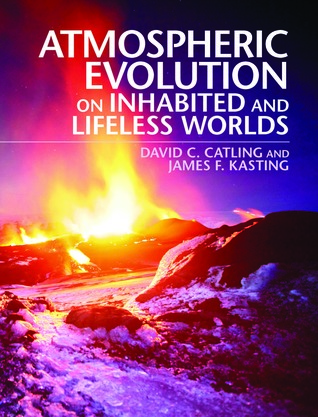David C. Catling
Goodreads Author
Member Since
December 2013
* Note: these are all the books on Goodreads for this author. To add more, click here.
“However life started, once established, it persisted for over 3.5 billion years and evolved from microbial slime to the sophistication of human civilization.”
― Astrobiology: A Very Short Introduction
― Astrobiology: A Very Short Introduction
“In the Solar System, Enceladus ought to be one of the highest priorities for the world's space agencies. Enceladus has a source of energy (tidal heating), organic material, and liquid water. That's a textbook-like list of those properties needed for life. Moreover, nature has provided astrobiologists with the ultimate free lunch: jets that spurt Enceladus's organic material into space.”
― Astrobiology: A Very Short Introduction
― Astrobiology: A Very Short Introduction
Topics Mentioning This Author
| topics | posts | views | last activity | |
|---|---|---|---|---|
A Million More Pages:
 Student Club Roster - Hufflepuff April Prefect Challenge
Student Club Roster - Hufflepuff April Prefect Challenge
|
250 | 160 | Jul 01, 2015 05:24PM |
“However life started, once established, it persisted for over 3.5 billion years and evolved from microbial slime to the sophistication of human civilization.”
― Astrobiology: A Very Short Introduction
― Astrobiology: A Very Short Introduction
“In the Solar System, Enceladus ought to be one of the highest priorities for the world's space agencies. Enceladus has a source of energy (tidal heating), organic material, and liquid water. That's a textbook-like list of those properties needed for life. Moreover, nature has provided astrobiologists with the ultimate free lunch: jets that spurt Enceladus's organic material into space.”
― Astrobiology: A Very Short Introduction
― Astrobiology: A Very Short Introduction
 Goodreads Librarians Group
— 310447 members
— last activity 1 minute ago
Goodreads Librarians Group
— 310447 members
— last activity 1 minute ago
Goodreads Librarians are volunteers who help ensure the accuracy of information about books and authors in the Goodreads' catalog. The Goodreads Libra ...more
























